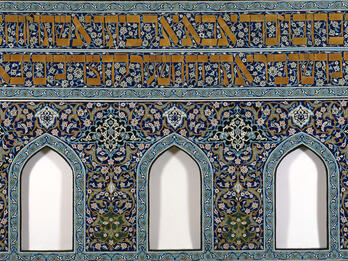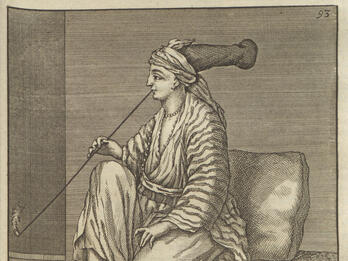Creator Bio
Mowlānā Shāhīn-i Shīrāzī
14th Century
Mowlānā Shāhīn-i Shīrāzī was a Judeo-Persian poet, known for poetic epics that retell biblical books in rhymed couplets, a form called masnavī: Bereshit-nāmah (Genesis), Musā-nāmah (the story of Moses), Ardashir-nāmah (Esther); and Ezra-nāmah (Ezra). His name, likely assumed, means “Our Master the Royal Falcon of Shiraz.” He lived in Īlkhānid Persia during the rule of Bahādur Abū Sa‘īd (1316–1335), for whom he wrote a panegyric.
Entries in the Posen Library by This Creator
Primary Source
Ardashir-nāmah (Shāhin-i Shirāzi)
This late seventeenth-century manuscript contains a full copy of the text of the Ardashīr-nāmah (The Tale of Esther), an epic poem by the fourteenth-century Jewish Persian writer Shāhīn-i Shīrāzī…
Primary Source
Mūsā nāma (The Book of Moses)
Mūsā nāmā (The Book of Moses) is a retelling of the biblical story of Moses, composed in Judeo-Persian verse by the poet Mowlānā Shāhīn-i Shīrāzī. In this scene, Phinehas (bottom right) surprises the…



